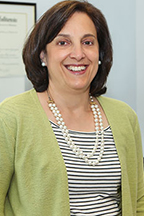 It is safe to say that Robert Morin achieved more notoriety following his death last year at age 77 than he ever did during his lifetime. Mr. Morin was an alumni and employee of the University of New Hampshire for almost 50 years, working in the University’s Dimond Library until his retirement in 2014. Although Mr. Morin was known as a frugal man (he drove a 1992 Plymouth), when he died he left his entire $4 million estate to UNH, a sum that shocked those that knew and worked with him. Although his financial advisor had spoken to him about being more specific about how he wanted his gift to UNH to be used, Mr. Morin chose only to specify that $100,000 was to go to the Library, saying UNH would “figure out what to do” with the rest of the money.
It is safe to say that Robert Morin achieved more notoriety following his death last year at age 77 than he ever did during his lifetime. Mr. Morin was an alumni and employee of the University of New Hampshire for almost 50 years, working in the University’s Dimond Library until his retirement in 2014. Although Mr. Morin was known as a frugal man (he drove a 1992 Plymouth), when he died he left his entire $4 million estate to UNH, a sum that shocked those that knew and worked with him. Although his financial advisor had spoken to him about being more specific about how he wanted his gift to UNH to be used, Mr. Morin chose only to specify that $100,000 was to go to the Library, saying UNH would “figure out what to do” with the rest of the money.
Although such a generous gift is certainly newsworthy, the story became even more interesting when UNH decided to spend $1 million of Mr. Morin’s gift on a new scoreboard for UNH’s new $25 million football stadium. This decision has generated a lot of discussion in the UNH community, with many people, including UNH alumni and some of Mr. Morin’s fellow employees, believing that the money could be used in ways that would more appropriately honor Mr. Morin’s memory.
This is just one tale of many in which a charitable bequest has been used in ways that the donor may not have intended. Although charities welcome unrestricted gifts that allow the charity to use the funds for whatever the charity’s needs and priorities are at that moment, many who are charitably inclined want their gift used in a specific way. If you are among those people who intend to benefit charity through your estate plan, consider specifying how you intend your gift to be used. This may mean taking care to explain your intent to your estate planning attorney so he or she can express your wishes in the Will or Trust that bestows the bequest. An even better approach is to contact the charity in advance of your death to discuss your wishes and make sure that what you envision is possible and that the charity is willing and able to use the funds as you wish.
I recently contacted a local university on behalf of a client who is considering including a gift in her estate plan for the benefit of a specific organization within the university. The university suggested that the client work with them to create a Memorandum of Intent that would clearly set out the client’s wishes and serve to guide the university in its use of the money following my client’s death. If you don’t have a specific use in mind, but want to be sure your money is used for charitable works, rather than administrative expenses, visit guidestar.org for free information on a charity’s income, spending and mission, or charitynavigator.org or give.org, which evaluate and rate different charities.
October 2016